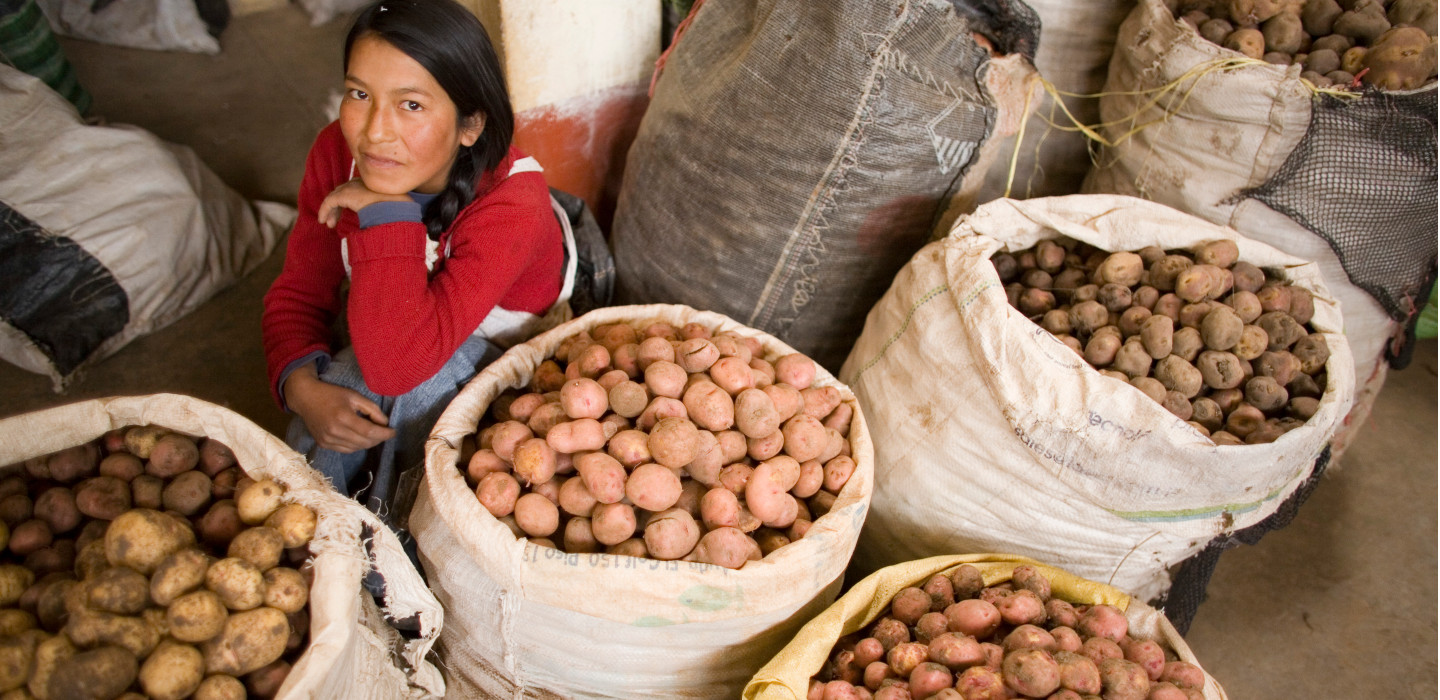Five reasons IFAD is putting small-scale farmers at the forefront of food systems transformation
IFAD Asset Request Portlet
Asset Publisher
Five reasons IFAD is putting small-scale farmers at the forefront of food systems transformation
Estimated reading time: 3 minutes
Our current food systems are not sustainable. Hunger has been on the rise for several years, with an estimated 811 million people worldwide going hungry in 2020 – and with the effects of the COVID-19 pandemic, up to 132 million more people are expected to join this number soon. Meanwhile, our food production practices – particularly the expansion of large-scale industrial agriculture – come with an unacceptably high environmental cost, threatening the food security of future generations.
This is an untenable situation, and it has become clear that we need to rethink all aspects of our food systems. That’s why, in 2021, UN Secretary-General António Guterres will convene a Food Systems Summit.
At IFAD, we believe small-scale farmers can offer solutions to these problems. But in order to succeed, they need the right tools – and that requires us to re-orient food systems so that these farmers are given opportunities to thrive, and to be fairly rewarded for the work they do.
Here are five reasons we believe that food systems with productive and prosperous small-scale farmers at their core can help us build a sustainable future.
- Increased incomes and profits among small-scale farmers and their businesses are invested back into local economies, where they create jobs and equitable growth. This is crucial for creating opportunities for rural youth to live and thrive in their home communities. In contrast, the benefits from larger-scale industrial farming models tend to lack these local links, with studies showing adverse impacts on local incomes and inequality.
- Small-scale farming systems are often more environmentally sustainable. Small-scale farmers often have greater levels of attachment to local landscapes and ecosystems. And sustainable, nature-based practices such as organic agriculture, crop rotation, and integrated pest management permaculture rely on the wealth of localized environmental knowledge that small-scale farmers possess.
- Small-scale farms are especially critical for the food security and nutrition of vulnerable groups. These farms serve predominantly domestic and local markets, including communities that modern supermarkets do not reach. They are of particular importance in developing countries: for example, they produce more than 70 per cent of the food calories in Latin America, sub-Saharan Africa and South and East Asia.
- Small-scale farming is often more productive than other types of agricultural businesses, including industrial farms. Land productivity on small farms has been shown to be higher in many contexts, as a result of the advantages associated with family-based labour and management. Family workers are more motivated, have more specific knowledge of the land, and are prepared to withstand shocks that would send corporate-managed farms out of business.
- Small-scale farming also contributes to culture and community. Communities that revolve around small-scale farming represent a rich and diverse cultural heritage, encompassing art, music, history and architecture. This kind of farming is also a rich source of traditional knowledge, offering solutions for balancing food production, livelihoods and the natural world.
Thriving small-scale farming systems can offer the solutions to many challenges the world is facing today while enriching the quality of rural lives and livelihoods. But for this to happen, we need radical changes to the way food systems work. For example, markets need to work for small-scale farmers, and research and innovation systems cannot continue to neglect their needs. And rural and urban areas must be better linked so that small-scale farmers can provide healthy, affordable food for growing urban areas.
These and other issues related to the challenges facing small-scale farmers and their communities must be at the forefront of the deliberations and outcomes of the Summit. Transforming food systems so they work for all starts with addressing the needs of those working within the systems themselves. Only then can small-scale farmers contribute to solving the problems we face – and be assured of decent livelihoods for themselves and their families.
Click here for more information on IFAD’s participation in the Summit, including our key messages for the world.
Publication date: 16 December 2020